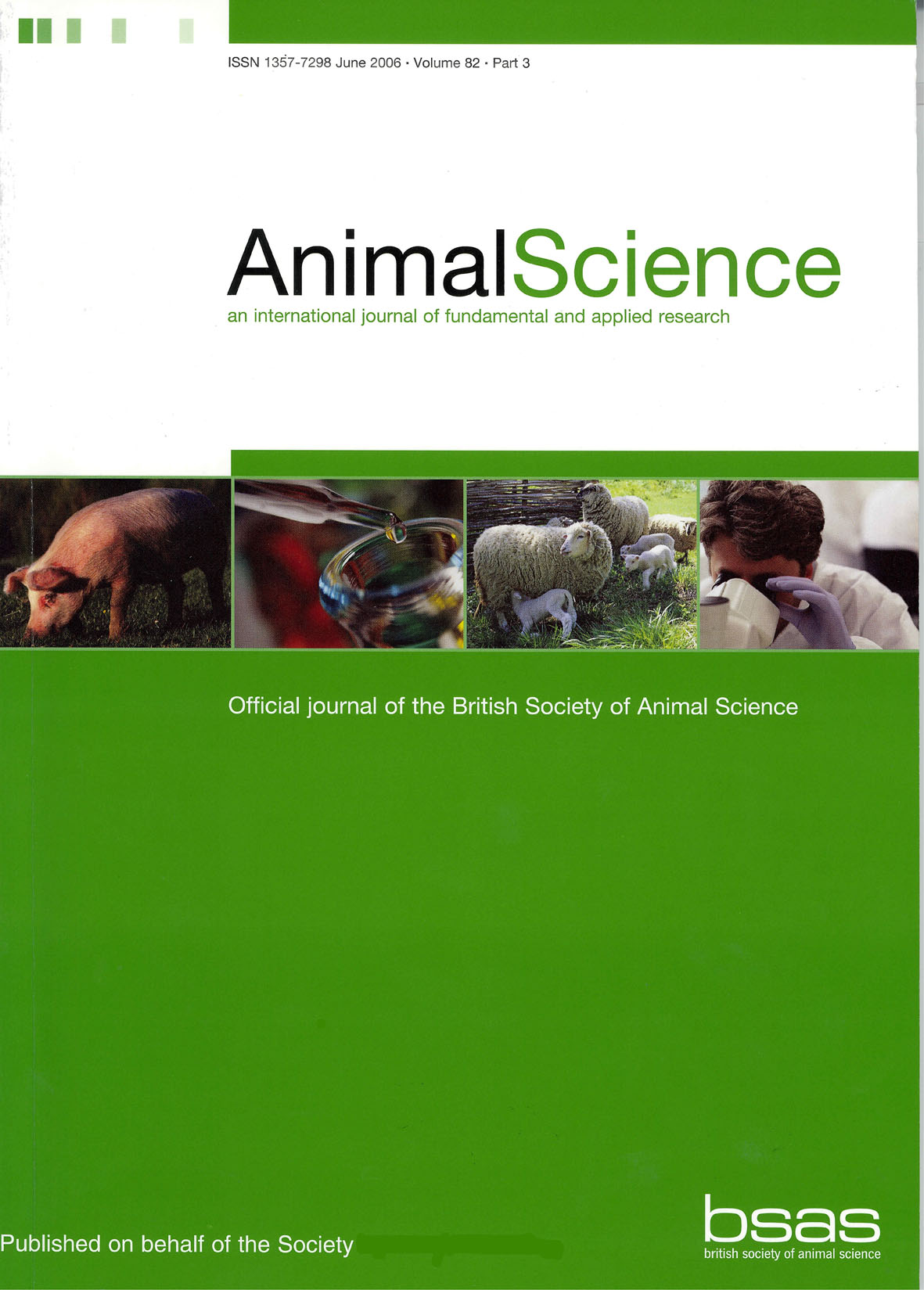Article contents
The effect of varying levels of mineral and iodine supplementation to ewes during late pregnancy on serum immunoglobulin G concentrations in their progeny
Published online by Cambridge University Press: 09 March 2007
Abstract
Three experiments were carried out to evaluate the effects of varying levels of mineral and iodine supplements when offered to ewes in late pregnancy on lamb serum immunoglobulin G (IgG) concentrations. In experiment 1, 44 individually housed ewes were allocated to one of four treatments (no. = 11) and offered a basal diet of grass silage ad libitum which was supplemented with 500 g/day of a concentrate (190 g/kg of crude protein (CP)), in addition to mineral/vitamin fortification at the rate of 0 g (C), 17.3 g (LM), 34.6 g (MM) or 52.0 g (HM) per day for the final 7 weeks of pregnancy. The mineral/vitamin supplement contained Ca, P, Na, Mg, Mn, Se, I, Co, Mn and vitamin E. The ewes were milked at 1 h, 10 h and 18 h post partum and measured quantities of colostrum, proportional to lamb birth weight, were fed back to the lambs via a stomach tube. Treatment had no effect on total colostrum yield or total IgG yield to 18 h post partum (P > 0.05). There was a linear decrease in serum IgG concentration and IgG absorption efficiency as mineral supplementation increased (P < 0.001). In experiment 2, which was carried out in conjunction with experiment 1, 44 ewes were allocated to four treatments (no. = 11) and offered the same basal silage/concentrate diet as in experiment 1, in addition to receiving one of the following supplements : (C) control, as in experiment 1; (HM), as in experiment 1; (−I), ewes offered the same mineral/vitamin supplement as HM but with iodine excluded; (I0), ewes offered a daily mineral supplement of iodine only at a level of 40 mg per ewe, equivalent to the iodine inclusion in the 52 g of minerals offered in HM. The iodine-supplemented progeny (HM and IO) had lower (P < 0.001) serum IgG concentrations and higher soil scores (P < 0.05) than the C and −I progeny. In experiment 3, the effects of varying levels of iodine supplementation when offered to ewes during the final 6 weeks of pregnancy on lamb serum IgG values were examined. Forty-eight individually housed ewes were allocated to one of four treatments (no. = 12) and offered grass silage ad libitum, which was supplemented initially with 500 g of a concentrate (140 g/kg of CP) from days 99 to 130 of gestation and then replaced with 700 g/day of a concentrate (180 g/kg of CP) from day 131 of gestation until lambing. In addition, the diet of each ewe was supplemented on a daily basis with iodine at the rate of 0 mg (C), 8.9 mg (LI), 17.7 mg (MI) or 26.6 mg (HI). There was a negative linear reduction in serum IgG concentration and IgG absorption efficiency as maternal dietary iodine supplementation increased (P < 0.001). We conclude that supplementation of the ewe's diet in late pregnancy with 17.3 g of a mineral supplement as formulated in the current experiment lowers the lamb's ability to absorb colostral IgG, and offering only the iodine component of this mineral supplement, at a level which approximates to about one third of currently quoted toxicity levels, will result in reduced serum IgG concentration in the lamb. These findings suggest the need to re-examine current toxicity values for iodine.
- Type
- Research Article
- Information
- Copyright
- Copyright © British Society of Animal Science 2005
References
- 20
- Cited by


